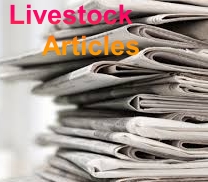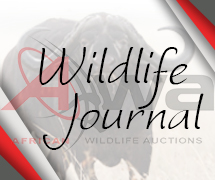How to Start Pig Farming
Whether a large or small scale pig farmer, you need a plan in order to make money from pig production.
When starting pig farming in South Africa you will need a plan. In fact, everything pig farming enterprise needs a plan, from the thousand-sow unit to the two-pig herd in the backyard of a poor-resource owner wanting to increase his family’s income. Whether it is a large commercial pig farm or a tiny one, the basic planning rules are the same.
The first thing to start with is the desired outcome, the end result. Do you want to breed and sell weaners? Or buy weaners and grow them to slaughter? Or buy and sell pigs as a speculator? Or breeding and raising young pigs up to slaughter-age?
The second thing to consider when starting a pig farm is to estimate the market requirements – how flexible, seasonal and what competition there already is.
Thirdly, consider the restrictions, regulations, health and environmental by-laws, town planning intentions for the town or area you plan to set up your farm?
Then, do a preliminary cost of production. You will need to calculate the basic cost of raw materials, what buildings (such as housing) are required, how much mechanization as well as the number of workers and their skill levels you will require.
If the end-product is perishable (pork meat), determine what is the shelf-life and storage capacity, refrigeration, transport, packaging you will need.
Funding for Pig Farming in South Africa
When planning pig farming you must find funding and/or finance to carry the new business through the period of development. The development phase will include setting up fencing, buildings pens and housing, buying equipment and sorting out labour, power, water supply, rates, insurance, while still paying your household expenses.
Determine how long will it be before there is an income so that the cash flow becomes positive and starts to make up the backlog. A realistic cash-flow estimate is essential, but often the worst part of a business plan. One is trying to predict the cost of production, interest on loans, running expenses, storage and balance these against the returns from sales over a future period of time when values and expenses are variable and unpredictable.
However, if a start-up entrepreneur wants to approach one of the possible sources of funds and be taken seriously, he or she must have gone to the trouble to enlist the help of someone who understands finance and, just as important in this case, pigs. Together, they will be able to develop a business plan that should get them through the first stage of a viable enterprise. There are several organizations who are in a position to help and focus on the support of small-time farmers in particular.
The South African government is the leader in the field and a succession of Ministers of Agriculture are on record as strong supporters of subsistence farmers and farmers in the informal sector. There is a substantial fund made available in the annual budget and with the Provincial Departments of Agriculture, this is allocated and spent through local provincial ion committees which have representation from the appropriate farming specialities.
Other arms of government such as the Department of Rural Development and Land Restitution have a role. However, there is never enough funding to satisfy the applications so other organizations come into the picture, including the Land Bank, provincial aiding funds and municipalities. In general, the beginner or small-herd pork producer should approach the Provincial Department in the first instance and find the section dealing with farm support and development.
Training and Advice for New Pig Farmers
Attending practical demonstrations will help you become a better farmer.
The most prominent and active organisation is the South African Pork Producers Organisation (SAPPO), to which most commercial producers belong. SAPPO is now increasing their membership among the aspirant small-herd section of pig farmers.
SAPPO has access to levy funds contributed by commercial farmers and collected at slaughter on a per-head basis. These funds are, in consultation with government, employed for the promotion of the pork industry and a percentage is directed to developing farmers for activities related to upliftment and training.
These funds, are not cash for funding new businesses or feed costs. The Pig Veterinary Society (PVS) is a group of the South African Veterinary Association which works in close cooperation with SAPPO and commercial producers in organizing training and advisory courses, practical demonstrations and planning sessions. These training sessions focus on biosecurity, welfare, feeding and housing of pigs, disease prevention and management.
Labelling of Pork Products
Pig Farming in South Africa
Farmers may allow their pigs to roam freely outside and use no genetically modified feed or antibiotics, but their produce will only qualify for free-range, organic or pasture reared labelling, if the label along with their production protocols are registered with the Department of Agriculture, Forestry Fisheries and regularly audited by an independent auditor, such as the South African Meat Industry Company (SAMIC).
In the absence of legislation governing the use of these labels, there are different interpretations of their meaning.
What is Sow Friendly?
The Sow-friendly label is used for pork meat where sows spend minimal time in individual pens.
Sows were traditionally confined to individual stalls for the entire gestation period of 16 weeks, because it was believed to help prevent miscarriages. The “sow friendly” food label is used for pork produced in a system where the sows spend very little time in these stalls – to qualify for the Woolworth sow friendly label, they may only be kept in the stalls during the first week of pregnancy, whereas they may be kept there for up to eight weeks to qualify for the PicknPay label.
Thereafter, the pregnant sows are grouped together and have freedom to more around and socialise before they are moved to individual farrowing crates a week before giving birth. While there are groupings who are against the use of farrowing crates, the majority of farmers and companies using this label allow the sows and their piglets to stay there for up to six weeks, until the piglets are weaned.
The argument for farrowing crates is that it enhances animal welfare by significantly reducing piglet mortalities, by easing management, preventing sows from crushing the piglets and ensuring piglets are warm enough and have good access to their source of milk.
Retailers usually have other specification with which producers also need to comply with to qualify for their labels. These generally relate to animal welfare, product traceability, animal health and veterinary treatments, feed and housing standards as well as transport and humane slaughter.
Free Range Production
Free range and pasture reared pigs spend most of their lives in camps outside.
Free range implies that the pigs are not confined in enclosures, but primarily fed outdoors and normally have free access to small paddocks. There are variations of this interpretation, with some of the farmers still making use of farrowing pens for up to six weeks to reduce piglet mortalities. Pigs will not be able to survive on forage or pasture alone, so should also receive supplementary feed.
Pasture Raised
Pasture raised is generally used for pigs that were raised outside on pasture, with most of their feed coming from forage but supplemented with legumes, grain and prepared feed.
Organic
People who are serious about this label will probably demand that it is only used for free-range pigs in sow-friendly production systems and that these pigs may only receive organically produced and registered feed and medicines. Antibiotics are generally not allowed, unless under extreme conditions. (No hormones are used in any form of pig production in South Africa, whether organic or not.)
Pork 360
Pork 360 is a quality assurance certification system of the South African Pork Producers Organisation.
Pork 360 is a quality assurance certification system of the South African Pork Producers Organisation.
It was registered with the Department of Agriculture, Forestry and Fisheries in 2015 and guarantees to both the consumer and retail sector that a producer has a consistent production process that complies with certain minimum standards.
These relate to food safety standards, sanitary and hygiene requirements, housing management, animal welfare, record-keeping, traceability, on farm production practices, pest control, feeding and feed quality, biosecurity, manure and water effluent management, transportation and the use of medication and vaccines.
Producers participate in the system by choice. They must have an accredited veterinary consultant who frequently visits, advises and evaluated the farm and production processes and an in-house Standard Operating Producers document, complying with the Pork 360 standards.
The farms are audited annually by an independent auditor to ensure the minimum prescribed standards are adhered to.








